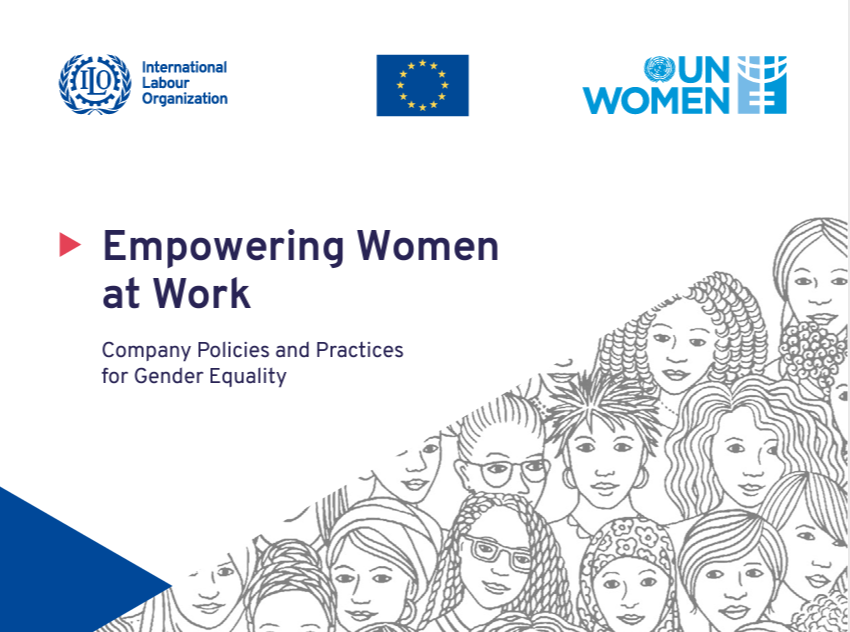Executive summary
Over the last 20 years, equality between women and men in the world of work has seen some encouraging improvements, but there remains scope for further progress. The private sector, including employer and business membership organizations, plays an important role in accelerating progress on closing gender gaps in the workplace. Women represent more than 50 per cent of the population worldwide, but only 45.3 per cent of women had a job in 2018.1 Women accounted for less than 4 per cent of board chairs across nearly 7,000 companies in 44 countries in 2017.2 Therefore, it is crucial to examine how key players in the private sector can implement policies that promote a future of work that is decent by design and is anchored in genuine and substantive gender equality.
This document focuses on five key areas where companies can contribute:
1. achievement of equal pay for work of equal value
2. prevention and elimination of violence and harassment
3. creating a harmonious work-life balance for both women and men
4. equal representation of women in business and management roles
5. investment in a future of work that works for women.
Part 1 provides an overview of the guiding frameworks for company policies to promote gender equality in the workplace. It includes an introduction to the leading normative instruments and initiatives concerning women’s economic empowerment and gender equality at work, and a brief summary of the international labour standards that underpin expectations for companies concerning gender equality. For easy reference, annexes provide further information on the normative instruments, initiatives and international labour standards.
Part 2 sets out the business case, provides 38 illustrative company practices and indicates sources from which companies can obtain further information. The examples are drawn from publicly available sources and do not assess impact. The objective is to present a range of measures companies can take – from more modest to more ambitious – to inspire companies of varying sizes, sectors and financial situations to identify ways in which they might be able to contribute to gender equality, in both the short and medium term, based on their unique circumstances.
Despite the commendable efforts of companies to promote women’s economic empowerment in the workplace, renewed and transformative efforts are needed, especially in the context of COVID-19 policy responses and crisis recovery.
This document was prepared as part of a series of publications on key stakeholders’ illustrative practices on gender equality at work under the EU, UN Women and ILO project “Empowering women at work through responsible business conduct in G7 countries” (WE EMPOWER – G7). WE EMPOWER – G7 aims at supporting sustainable, inclusive and equitable economic growth by promoting women’s economic empowerment in the public and private sectors in G7 countries. Hence, this report has a particular focus on companies operating in G7 and EU countries, but can be of use to companies regardless of where they are located.
Read complete paper here – https://www.ilo.org/wcmsp5/groups/public/—ed_emp/—emp_ent/—multi/documents/publication/wcms_756721.pdf




